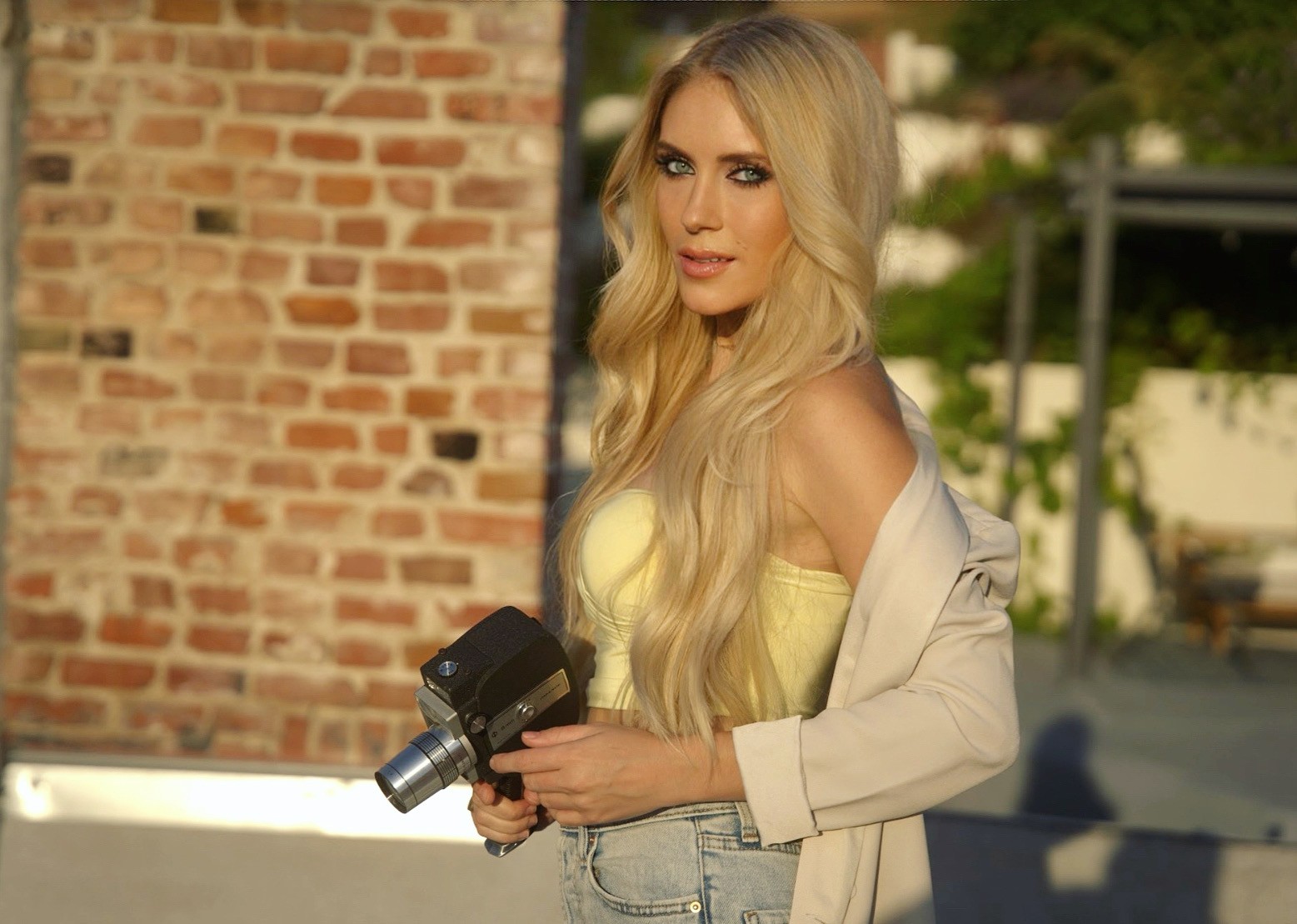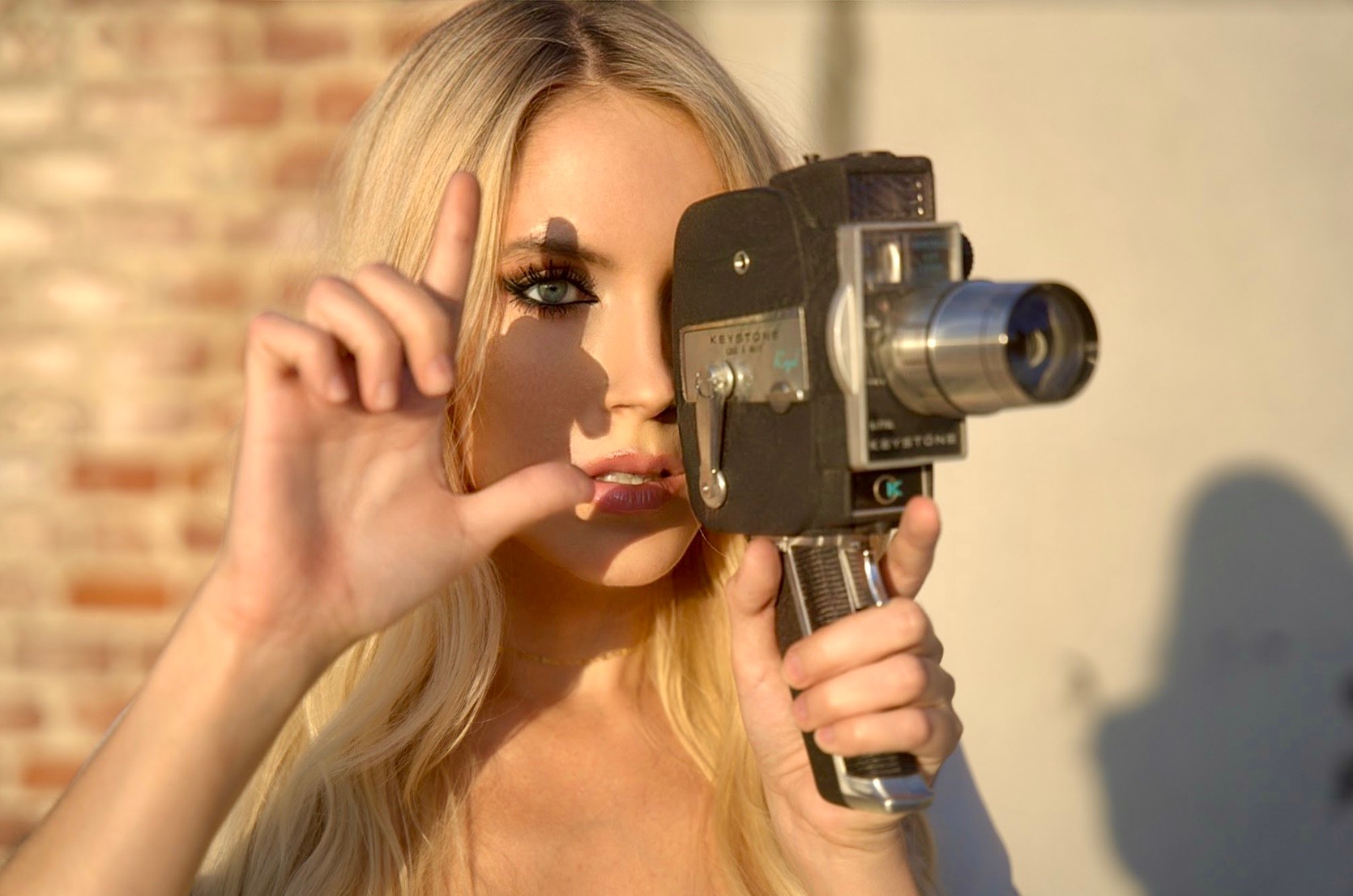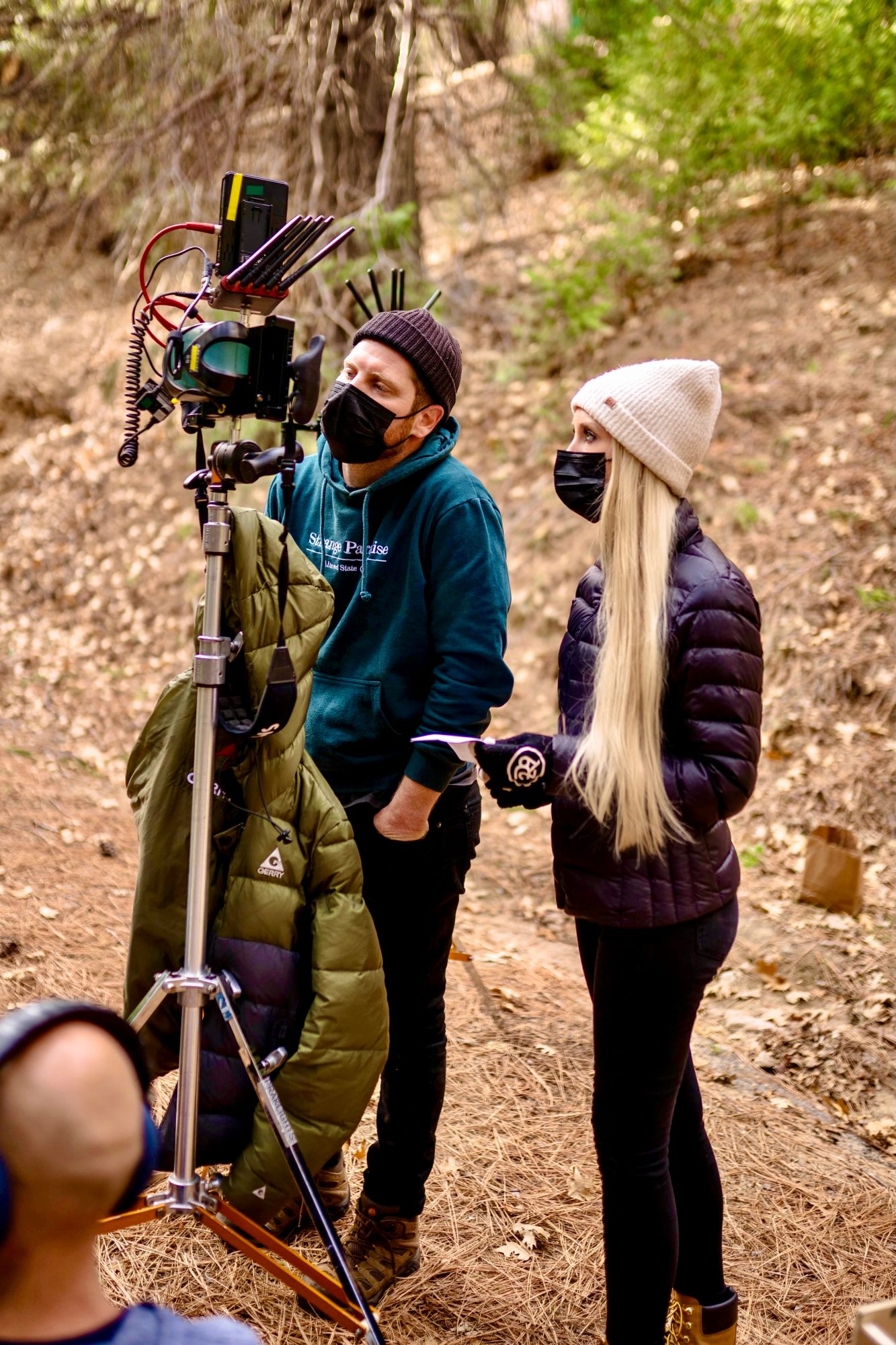

Today we’d like to introduce you to Anna Klassen.
Hi Anna, it’s an honor to have you on the platform. Thanks for taking the time to share your story with us – to start, maybe you can share some of your backstories with our readers.
I grew up making movies with my parents’ old Camcorder strapped to my shoulder. But living in Oregon, without any connections to the business, I assumed being a filmmaker was an impossible dream. Instead, I put all of my efforts into becoming a film journalist. If I couldn’t write movies themselves, perhaps I could write about movies.
I got a journalism degree and moved to Los Angeles for a job at Newsweek and The Daily Beast. There, I was an entertainment reporter — interviewing actors and directors about the movies they made. I did this for several years, at one point making the switch to become an entertainment editor at Bustle. But the more I spoke to filmmakers, the harder it was to be an outsider looking in. It wasn’t enough to be writing about the art, I needed to make it.
That’s when I started writing scripts on nights and weekends. I spent every free moment hunched over my laptop, pounding at the keys. It wasn’t glamorous or romantic, like many may think writing is. It’s a sacrifice — time away from friends, loved ones, social engagements. I was completely drained, working a 9 to 5, then writing scripts until the early morning hours. But to me it was worth it.
A few years into writing scripts a TV pilot I wrote won a fellowship, and that same year, I had a feature script land on the Black List. That’s when everything changed. Representation came knocking, and I was taking so many meetings a week that I had to decide if the possibility of a career in screenwriting was worth giving up my full-time job. I decided to take the plunge, leaving my salary and security behind. A grueling 12 months followed, but then I was lucky enough to land my first job — writing a feature for a major studio.
Since then, I’ve written many more scripts, but it’s still a hustle, and uncertainty and rejection lurks behind every corner. It’s not an easy career path, but there’s nothing else I’d rather do. Because ultimately, despite all its shortcomings, writing itself is the reward.
Alright, so let’s dig a little deeper into the story – has it been an easy path overall, and if not, what were the challenges you’ve had to overcome?
Writing, like all artistic endeavors, is a predictably unsure road. Not only is it incredibly hard to break into screenwriting, maintaining a career is also a struggle. There are countless people who want to write movies and television, and only a very small number are able to sustain a lifelong career in the industry.
When I quit my comfortable 9 to 5 to take an earnest stab at screenwriting, I didn’t realize the toll it would take on my mental health. I had won some prestigious accolades for writing, but I didn’t have any money in my pocket to show for it. I spent 12 months on a rollercoaster of emotions — I sunk into depression and felt like a fool for quitting a job that allowed me to pay my rent. The imposter syndrome and self-doubt was ever-present.
After about a year of pitching, writing, and scrambling to stay afloat, I was hired to write an exciting feature film. I was able to exhale — for a moment.
But the years that followed were also uncertain. Every movie you write, or every TV show you’re hired to write on, is a job that eventually ends. Then, you have to find the next job, and the next, and so on… forever. Rejection is a staple of this business, and forging a tough skin and learning resilience is essential to staying alive in the industry.
My biggest advice to those breaking in is to always have multiple irons in the fire. Always be writing and developing multiple projects at once. Ultimately, some (or likely, most) of your darlings will be squashed, and it makes the heartbreak easier when you can shift to another project that’s still alive. Mourn your loss, then move on.
I know that the challenges will always persist, but as I continue to work, my own tools to navigate the industry have become sharper, and my armor has become stronger.
As you know, we’re big fans of you and your work. For our readers who might not be as familiar, what can you tell them about what you do?
I’m probably most known for a script called When Lightning Strikes — a J.K. Rowling biopic. That script opened a lot of doors for me.
But what I’m most proud of is a movie I was hired to write called Raising the Dead. It’s a true story set in South Africa about a group of divers attempting the unthinkable. Much of the film takes place underwater, and I loved the challenge of working with characters who couldn’t speak to each other in conventional ways.
Authenticity was a priority for me with this script. I did a lot of research about the technical side of diving and its many dangers. Also, because the film is based on a true story, many of the players involved are still alive, and I tried to be considerate and respectful of their experience. I’m truly in awe of what they accomplished, and I can’t wait for audiences to see this film.
Can you talk to us about how you think about risk?
Just as in acting, it’s easy to get pigeonholed as a screenwriter. I write in a variety of genres — drama, thriller, horror, biopics, romance, etc. But the industry wants writers to work in one specific lane. It’s easier for them to slot you into a complicated system if they can figure out who you are and what you write. But of course, screenwriters are people — we have varied interests that change and evolve. We can write many things.
A risk I’ve taken recently is trying to peel off my predetermined label and reinvent myself. I broke into the industry with a specific script, and it would be easy to write in that same genre for the rest of my career. But I want to have options. I want to pursue the stories that move me, regardless of genre. But in order to prove to the industry that I’m capable of doing so, I have to start from scratch in many ways. I have to commit to working from the ground up in a new arena. But the work is an easy choice. I’d much rather prove myself over and over again than stay in a single small, cramped lane for the rest of my career.
Contact Info:
- Instagram: @annajklassen
- Twitter: @annajklassen




Image Credits
Marcus Henderson











